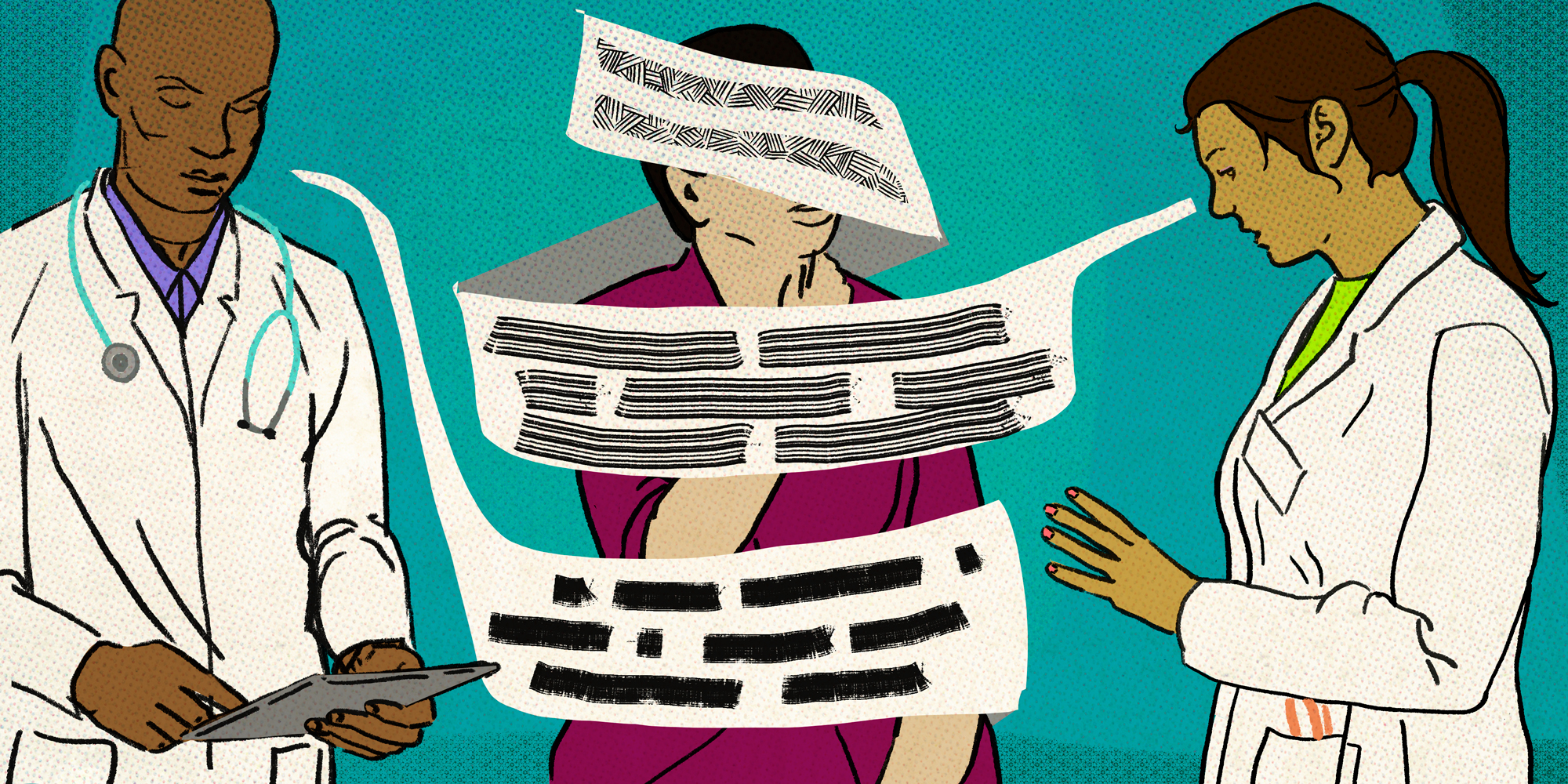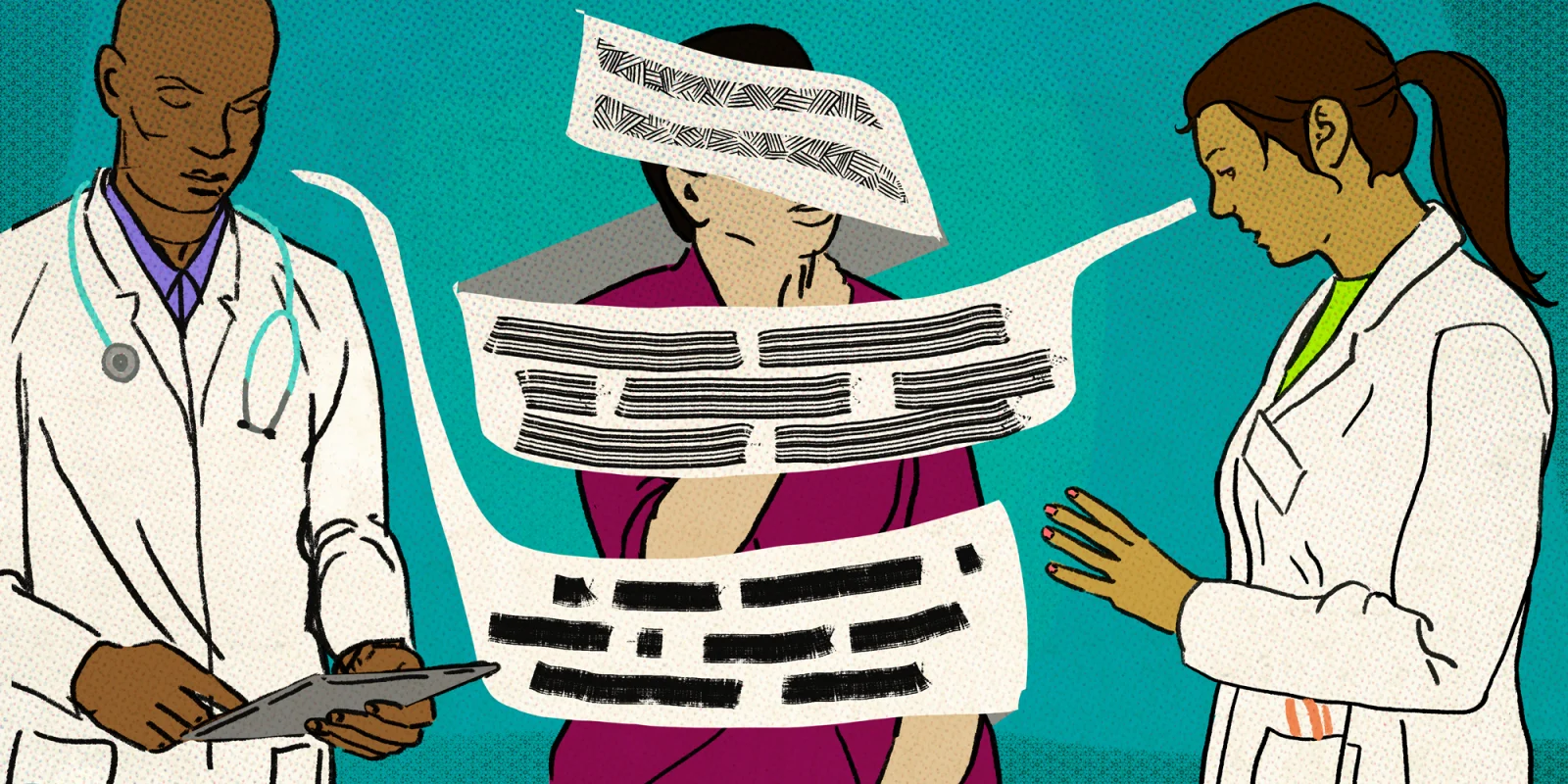 Many years ago, my son brought home a canvas he decorated in his school’s art class. He filled the entire canvas with the word “words.” This opened my mind to the power of words. As a surgeon, the wrong cut or nick with a scalpel — or sword — can severely damage your patient. But, words can also deeply impact a patient when “wordswordswords” become “swordswordswords.”
Many years ago, my son brought home a canvas he decorated in his school’s art class. He filled the entire canvas with the word “words.” This opened my mind to the power of words. As a surgeon, the wrong cut or nick with a scalpel — or sword — can severely damage your patient. But, words can also deeply impact a patient when “wordswordswords” become “swordswordswords.”
Words are a powerful influence, and I don’t believe physicians are taught how to communicate efficiently with patients. While we are legally obligated to make sure patients give informed consent to all the side effects of a procedure, we likely aren’t emphasizing the benefits enough. This can sometimes scare a patient into not wanting that therapy. I often wonder why anyone would want to try any drug, based on the way TV commercials advertise them.
My approach to patient interactions can be summed up by Dr. Milton Erickson, an American psychiatrist known for his work with hypnosis. While working with a patient, he wrote in a patient’s chart and then excused himself and stepped out of the office for a minute. When the patient peeked at the chart, she saw, “Doing well” written there. Dr. Erickson believed it was therapeutic to be positively suggestive about a patient’s progress.
One way I improved communication was to pay closer attention to the way patients described what they were experiencing. If that description included negative words, I asked how or what in their lives fit those words. The words they shared — like “pressure” for pain, or “failure” for a cancer experience — led me to seek ways to help my patients eliminate or decrease that negativity.
In addition to paying attention to what patients said to me, I paid attention to what we said to the patients, specifically in the OR. I started to change simple things, such as describing an injection feeling like a mosquito bite instead of a bee sting. When the anesthesiologist described the “going out” process to patients, I would follow up and ask, “When was the last time you went out on a date?”
I found that this positive suggestion worked for patients in easing their stress and pain. During surgery, I asked my patients to not bleed and divert the blood away from the area of surgery. I was not a normal surgeon, but no one was against success. Before a patient awoke from surgery, I told them, “You will wake up comfortable, thirsty, and hungry.” I had to change that to, “But you won’t finish what is on your plate” when all my patients began to gain weight.
The power of words became the most evident to me when I worked with pediatric patients. To relieve children of their fear of pain in surgery, I told them, “You will go to sleep when you go into the OR.” I was shocked to have children fall asleep on their stretcher while they were being wheeled into the OR. One child flipped over onto his stomach and went to sleep as we entered the OR. When I turned him over for his appendectomy, he awakened and said, “You told me I would go to sleep and I sleep on my stomach.” We reached a compromise.
The power of words allowed me to draw blood from children with minimal pain. I tricked them by rubbing the blood draw site with an alcohol sponge, telling them, “This will numb your skin.” A third of my pediatric patients experienced total anesthesia, while the others reported a less negative emotional experience, but told me it didn’t work. I apologized and blamed the defective alcohol sponge.
The power of words became one of my most important therapeutic tools. With paradox and humor, I readjusted patients’ thoughts and feelings. Our bodies respond to our beliefs, and I’d rather lie therapeutically to a patient than induce side effects. When I did have to share negative side effects, I would add that they don’t happen to everyone.
While this positive suggestiveness doesn’t work for everyone, I have found, in my personal experience, that there are cases where it does. One of my patients had a follow-up visit with the local radiation therapist. The therapist told me, “I thought the machine was broken because this woman had no side effects of the treatment. Then, I saw your name in her chart and I knew she was one of Siegel’s ‘crazy’ patients.”
When the therapist asked the patient why she had no side effects, the patient said, “I get out of the way and let it go to my tumor.” The mind is a powerful and amazing thing.
Illustration by Jennifer Bogartz





